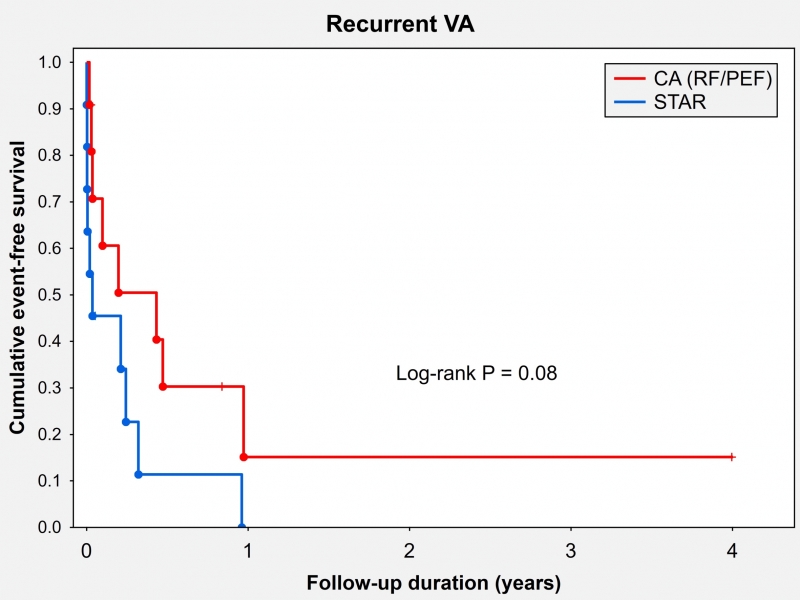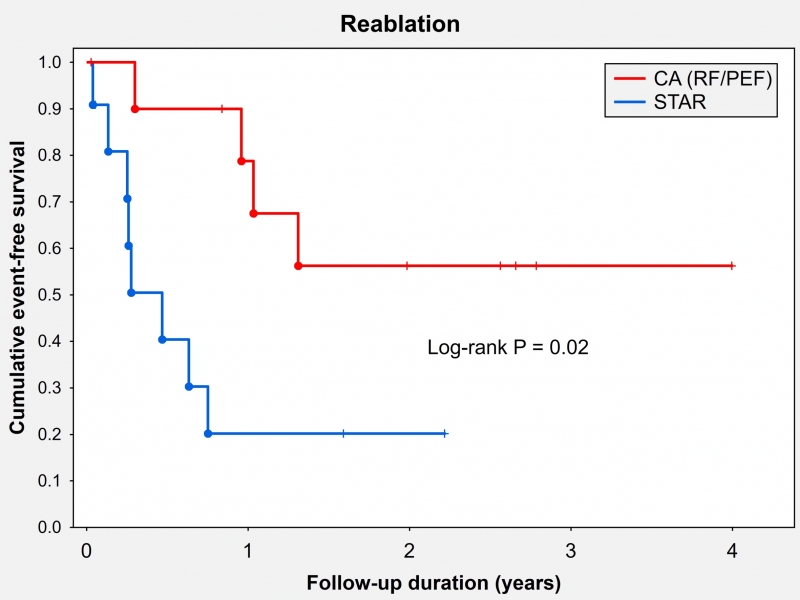STAR VT RANDOMIZED TRIAL COMPARING STEREOTACTIC ABLATIVE RADIOSURGERY FOR RECURRENT VT WITH REPEATED RADIOFREQUENCY ABLATION IN PATIENTS WITH STRUCTURAL HEART DISEASE
Introduction: The goal was to compare the efficacy of stereotactic arrhythmia radiotherapy (STAR) and repeated radiofrequency catheter ablation (RFCA) for drug-refractory ventricular tachycardia (VT) in patients with structural heart disease (SHD) who already underwent at least one failed RFCA in the expert center (STAR VT trial; NCT04612140).
Methods:The patients were recruited between June 2020 and July 2025, and randomized to STAR or repeated RFCA in a 1:1 fashion. The planned target volume for STAR (CyberKnife, Accuray) was determined by a co-registration of an electroanatomical map of the arrhythmogenic substrate (CARTO 3, Biosense Webster) with the planning computed tomography scan. A single dose of 25 Gy was delivered. Repeated RFCA was performed according to corresponding guidelines.Recurrence of sustained VT and clinically indicated repeated ablation for VT were study endpoints.
Results: The recruitment of patients was much lower than expected and within a 4-year period a total of 22 patients (77 % males, aged 67±11 years, 27 % ischemic cardiomyopathy, LVEF 29±6 %, 3.1±1.3 previous RFCA) were enrolled (11 in each arm) and followed for 18±12 months. Patients after STAR compared to RFCA had a non-significantly (P = 0.08) higher risk of VT recurrence and a significantly (P = 0.02) higher risk of repeated ablation for VT (Figure1,2).There were 8 and 2 crossovers from the STAR and RFCA arm, respectively. During the follow-up period, 3 patients underwent heart transplant, 3 implantation of left ventricular mechanical support and 11 died due progression of heart failure.
Conclusions:The results for STAR VT shows that patients with the recurrence of SHD-related VT after several RFCA procedures still benefit more from repeated RFCA compared to STAR. The prognosis of these patients is serious.



